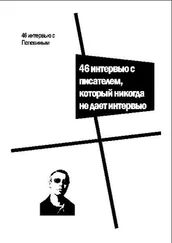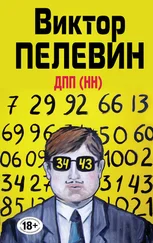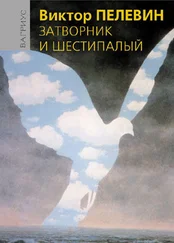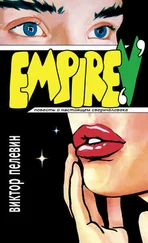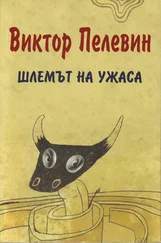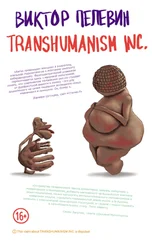Виктор Пелевин - Buddha's Little Finger
Здесь есть возможность читать онлайн «Виктор Пелевин - Buddha's Little Finger» весь текст электронной книги совершенно бесплатно (целиком полную версию без сокращений). В некоторых случаях можно слушать аудио, скачать через торрент в формате fb2 и присутствует краткое содержание. Жанр: Современная проза, на английском языке. Описание произведения, (предисловие) а так же отзывы посетителей доступны на портале библиотеки ЛибКат.
- Название:Buddha's Little Finger
- Автор:
- Жанр:
- Год:неизвестен
- ISBN:нет данных
- Рейтинг книги:5 / 5. Голосов: 1
-
Избранное:Добавить в избранное
- Отзывы:
-
Ваша оценка:
- 100
- 1
- 2
- 3
- 4
- 5
Buddha's Little Finger: краткое содержание, описание и аннотация
Предлагаем к чтению аннотацию, описание, краткое содержание или предисловие (зависит от того, что написал сам автор книги «Buddha's Little Finger»). Если вы не нашли необходимую информацию о книге — напишите в комментариях, мы постараемся отыскать её.
Buddha's Little Finger — читать онлайн бесплатно полную книгу (весь текст) целиком
Ниже представлен текст книги, разбитый по страницам. Система сохранения места последней прочитанной страницы, позволяет с удобством читать онлайн бесплатно книгу «Buddha's Little Finger», без необходимости каждый раз заново искать на чём Вы остановились. Поставьте закладку, и сможете в любой момент перейти на страницу, на которой закончили чтение.
Интервал:
Закладка:
‘Of course. Twenty-six.’
‘There you are, you see. You belong to the very generation that was programmed for life in one socio-cultural paradigm, but has found itself living in a quite different one. Do you follow what I’m saying?’
‘Most definitely,’ I replied.
‘So what we have is a prima facie internal conflict. But let me reassure you straight away that you’re not the only one struggling with this difficulty. I have a similar problem myself.
‘Oh, really?’ I exclaimed in a rather mocking tone. ‘And just how do you deal with it?’
‘We can talk about me later,’ he said, ‘let’s try sorting you out first. As I’ve already said, nowadays almost everyone suffers from the same subconscious conflict. What I want you to do is to recognize its nature. You know, the world around us is reflected in our consciousness and then it becomes the object of our mental activity. When established connections in the real world collapse, the same thing happens in the human psyche. And this is accompanied by the release of a colossal amount of psychic energy within the enclosed space of your ego. It’s like a small atomic explosion. But what really matters is how the energy is channelled after the explosion.’
The conversation was taking a curious turn.
‘And what channels, if I may ask, are available?’
‘If we keep it simple, there are two. Psychic energy can move outwards, so to speak, into the external world, striving towards objects like… well, shall we say, a leather jacket or a luxury automobile. Many of your contemporaries…’
I remembered Vorblei and shuddered. ‘I understand. Please do not continue.’
‘Excellent. In the other case, for one reason or another, this energy remains within. This is the less favourable course of events. Imagine a bull locked inside a museum…’
‘An excellent image.’
‘Thank you. Well then, this museum, with its fragile and possibly beautiful exhibits, is your personality, your inner world. And the bull rushing about inside it is the release of psychic energy that you are unable to cope with. The reason why you are here.’
Me really is very clever, I thought - but what an utter scoundrel!
‘I can tell you more,’ continued Timur Timurovich. ‘I’ve given a great deal of thought as to why some people have the strength to start a new life - for want of a better term, we can call them the «New Russians», although I detest that expression…’
‘Indeed, it is quite repulsive. And also inaccurate; if you are quoting the revolutionary democrats of the last century, then I believe that they called them the new people.’
‘Possibly. But the question remains the same: why do some people actively strive, as it were, towards the new, while others persist in their attempts to clarify their non-existent relations with the shadows of a vanished world?’
‘Now that really is magnificent. You’re a genuine poet.’
‘Thank you once again. The answer, in my view, is very simple - I’m afraid you might even find it rather primitive. Let me build up to it. The life of a man, a country, a culture and so on, is a series of constant metamorphoses. Sometimes they extend over a period of time and so are imperceptible, sometimes they assume acute forms, as in the present case. And it is precisely the attitude to these metamorphoses that determines the fundamental difference between cultures. For instance, China, the culture you are so crazy about…’
‘What makes you think that?’ I asked, feeling my tightly bound hands clench into fists behind my back.
‘Your case history,’ said Timur Timurovich, picking up the very fattest of the files on his desk. ‘I was just leafing through it.’
He threw the file back down again. ‘Yes, China. As you may recall, their entire world view is constructed on the principle that the world is constantly degenerating as it moves from a golden age towards darkness and stagnation. For them, absolute standards have been left far behind in the past, and all that is new is evil insofar as it leads the world still further away from those standards.’
‘I beg your pardon,’ I said, ‘but this is a typical aspect of human culture in general. It is even present in language itself. In English, for instance, we are the descendants of the past. The word signifies movement downwards, not upwards. We are not ascendants.’
‘Possibly,’ Timur Timurovich answered. ‘I don’t know any foreign languages except Latin. But that’s not the point here. When this type of consciousness is embodied in an individual personality, then the person concerned begins to regard his childhood as a lost paradise. Take Nabokov. His endless musings on the early years of his life are a classic example of what I’m talking about. And the classic example of recovery, of the reorientation of consciousness to the real world is the contra-sublimation, as I would call it, that he achieved in such a masterly fashion by transforming his longing for an unattainable paradise which may never have existed at all into a simple, earthly and somewhat illegitimate passion for a little girl, a child. Although at first-’
‘Excuse me,’ I interrupted, ‘but which Nabokov are you talking about? The leader of the Constitutional Democrats?’
Timur Timurovich smiled with emphatic politeness. ‘No,’ he said, ‘his son,’
‘Little Vovka from the Tenishevsky school? You mean you have picked him up as well? But he’s in the Crimea! And what kind of nonsense is all this about little girls?’
‘Very well, very well. He’s in the Crimea,’ Timur Timurovich replied briskly. ‘In the Crimea. But we were talking about China. And the fact that for the classic Chinese mentality, any advance is bound to mean degeneration. But there is another path, the one followed by Europe throughout its history, no matter what you might tell me about language. The path that Russia has been struggling to follow for so many years, as it enters again and again into its ill-fated alchemical wedlock with the West.’
‘Remarkable.’
‘Thank you. In this case the ideal is conceived not as something left behind in the past, but as something potentially existing in the future. Do you understand me? This is the idea of development, progress, movement from the less perfect to the more perfect. The same thing occurs at the level of the individual personality, even if individual progress takes such petty forms as redecorating an apartment or changing an old car for a new one. It makes it possible to carry on living - but you don’t want to pay for any of this. The metaphorical bull we were talking about rushes about in your soul, trampling everything in its path, precisely because you are not prepared to submit to reality. You don’t want to let the bull out. You despise the positions that the times require us to adopt. And precisely this is the cause of your tragedy.’
‘What you say is interesting, of course, but far too complicated.’ I said, casting a sideways glance at the man in military trousers over by the wall. ‘And now my hands have gone numb. As for progress, I can easily provide you with a brief explanation of what that is.’
‘Please do so.’
‘It is very simple. If we put everything that you were saying in a nutshell, then we are left with the simple fact that some people adapt themselves to change more quickly than others. But have you ever asked yourself why these changes take place at all?’
Timur Timurovich shrugged.
‘Then let me tell you. You would not, I trust, deny that the more cunning and dishonourable a man is, the easier his life is?’
‘No, I wouldn’t.’
‘And his life is easier precisely because he adapts more rapidly to change?’
‘Perhaps.’
‘Well then, there exists a level of dishonourable cunning, my dear sir, at which a man anticipates the outcome of change even before it is completed, and as a result he is able to adapt far more rapidly than everyone else. But far worse than that, the most sensitive of scoundrels actually adapt to change before it has even begun.’
Читать дальшеИнтервал:
Закладка:
Похожие книги на «Buddha's Little Finger»
Представляем Вашему вниманию похожие книги на «Buddha's Little Finger» списком для выбора. Мы отобрали схожую по названию и смыслу литературу в надежде предоставить читателям больше вариантов отыскать новые, интересные, ещё непрочитанные произведения.
Обсуждение, отзывы о книге «Buddha's Little Finger» и просто собственные мнения читателей. Оставьте ваши комментарии, напишите, что Вы думаете о произведении, его смысле или главных героях. Укажите что конкретно понравилось, а что нет, и почему Вы так считаете.

